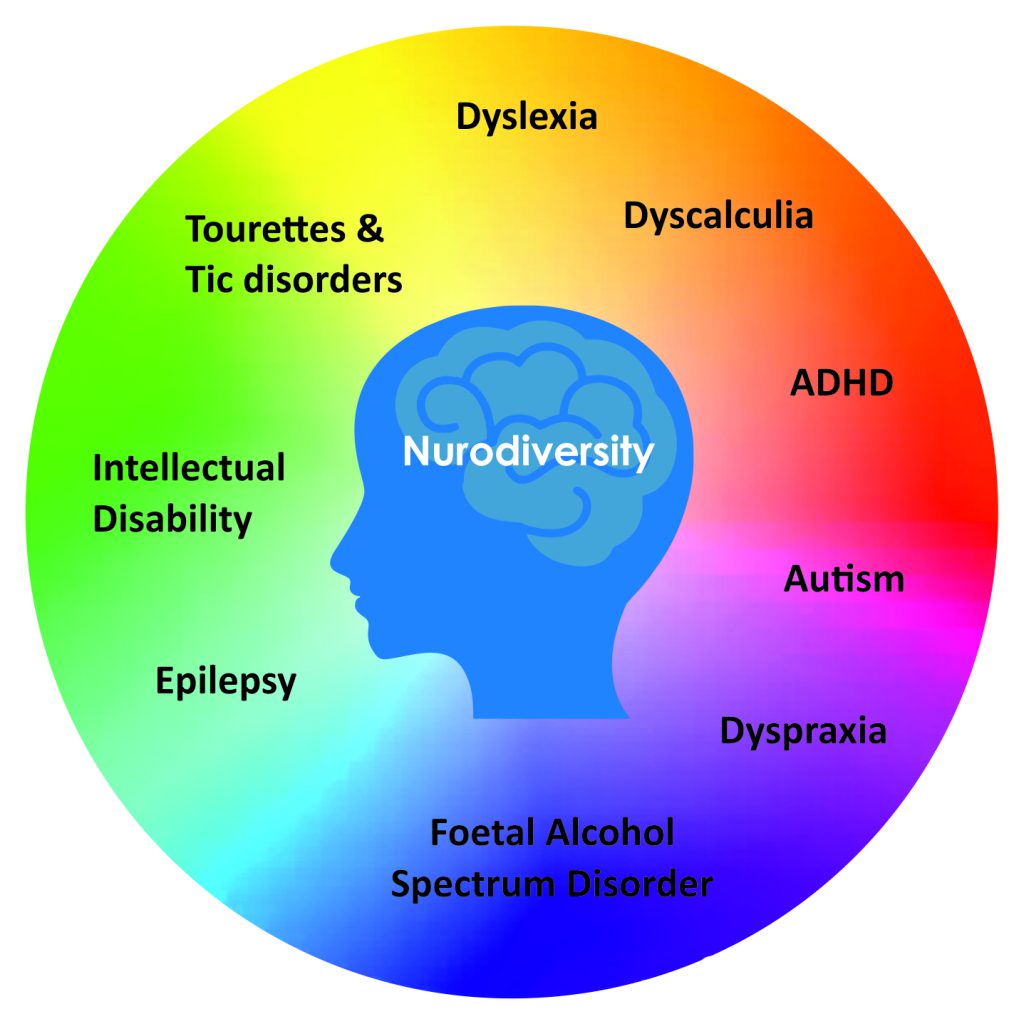Dyslexia and Neurodiversity
Neurodiversity is a term which encourages neurodevelopmental differences to be viewed and understood in a positive way. It is not a medical diagnostic label.
What does neurodiversity mean?
Neurodiversity is the name given to a burgeoning social movement, thought to be first coined by Judy Singer, an Australian sociologist in the 1990s. Neurodiversity is not a medical diagnostic label, rather an umbrella term which encourages neurodevelopmental differences such as autism, ADHD and Dyslexia to be viewed and understood in a positive way. The neurodiversity paradigm was first embraced by the autistic community as a means of empowerment and to dispel the belief that neurodevelopmental differences are something to be treated and cured rather than an important and valuable part of human diversity.
Neurodiversity
The Neurodiversity movement has helped to challenge how structures within society such as organisations, institutions, attitudes and culture exclude or disadvantage individuals who might be considered to be ‘neurodivergent’, or part of a ‘neurominority’. Under Singer’s definition, individuals would not be referred to as ‘neurodiverse’, this is a term that refers to society as a whole, and the varying neurotypes within the overall population. Overall understanding of the concept of neurodiversity and associated terminology is rapidly evolving, often propelled by discussions around the movement taking place on social media.
The idea of neurodiversity has now been embraced by many other groups including dyslexia support groups, who are using the term as a means of empowerment and to promote the positive qualities possessed by those with a neurological difference. It encourages people to view neurological differences such as dyslexia, autism and dyspraxia as natural and normal variations of the human genome. Furthermore, it encourages them to reject the culturally entrenched negativity which has typically surrounded those that live, learn and view the world differently.
Most people are neurotypical, meaning that the brain functions and processes information in the way society expects. However, it is estimated that around 1 in 7 people (more than 15% of people in the UK) are neurodivergent, meaning that the brain functions, learns and processes information differently.
The term neurodiversity usually refers to range of specific learning differences including:
- Attention Deficit Hyperactivity Disorder (ADHD)
- Developmental Co-ordination Disorder (DCD) also referred to as Dyspraxia
- Developmental Language Disorder (DLD)
- Epilepsy
- Foetal Alcohol Spectrum Disorder
- Intellectual Disability
- Tourettes and Tic disorders
- Specific Learning Disorder/ Differences e.g Dyslexia, Dyscalculia.

It is normal practice for specific learning differences such as Dyslexia and Dyscalculia to be identified through a non- medical pathway.
The term neurodiversity is increasingly being used in the workplace, education and beyond. It is rare that a child or adult would have only one area of difficulty. Co-occurrence of learning differences appears to be the rule rather than the exception.
Support must focus on need not a label.
The vast majority of children and young people in Scotland are supported in the Universal level of the Staged Level of Intervention. Using inclusive practice through a universal design approach enables the development of learning and teaching which is accessible for all learners. Support must focus on need – it is not dependent on a label or diagnosis.
Download Dyslexia Scotland’s information leaflet on Neurodiversity in the Resources section on the left hand side of this page.
Health professionals, industry and commerce are increasingly using the term neurodiversity. This approach supports the child centred education system in Scotland which also highlights the co-occurrences between specific learning differences. Research by Kaplan et al, 1998 suggests that it is rare for an adult or child to only have one area of difficulty.
The National Institute of Economic and Social Research highlighted this point in a study conducted for ACAS in 2016 (the UK Advisory, Conciliation and Arbitration Service), which explained that there is a
“Propensity for neurodivergent individuals to be stereotyped according to the more well-known characteristics of their condition.”
The report stressed that not all individuals with autism are highly numerate, nor will everyone with dyslexia have insurmountable difficulties around functional literacy.
Further information: neurodiversity
To find out more about the concept of neurodiversity, further information is available in the Professional Development section of the Toolkit.
